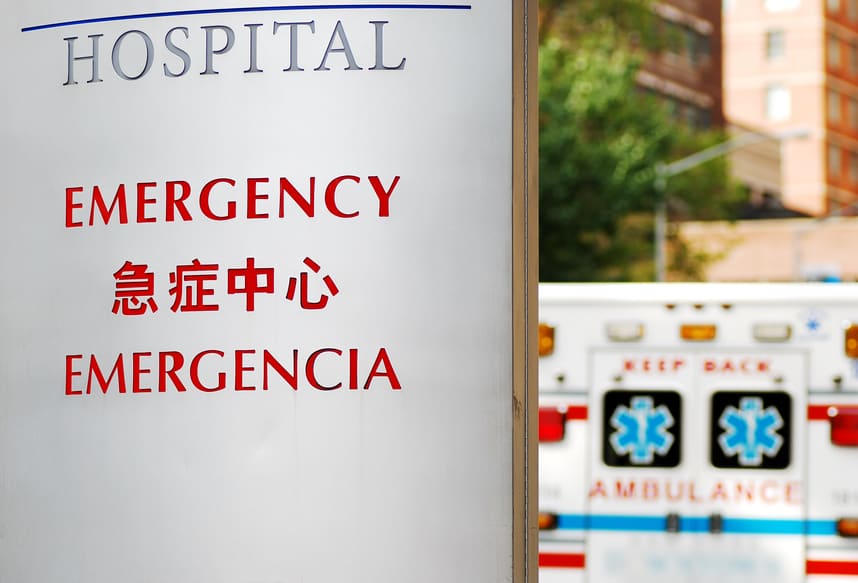Hospitals Receiving Stimulus Money Are Banned from Surprise Medical Billing for COVID-19 Treatment, White House Says
May 3, 2020
Prohibition on Surprise Medical Billing Means Coronavirus Patients Should Be Billed at In-Network Rates
The U.S. healthcare system will see an influx of $100 billion in federal stimulus funds over the coming months. These funds are intended to ease the losses from elective procedures that were canceled to free up resources for COVID-19 patients.
While this stimulus money may go a long way to helping hospitals across the nation, those that take some of this grant money will also have to make a promise to their coronavirus patients. They’ll have to agree to bill at in-network rates and not engage in surprise medical billing for coronavirus treatments.
That’s according to the latest information from the White House. Though many have praised the move for its proactive approach towards curbing outrageous medical bills, a lot remains unknown about how this contingency will work and be enforced.
Surprise Medical Billing for Coronavirus Treatment: A Look at the Potential Problem
For many COVID-19 survivors who have been treated in hospitals, the bills for their treatments may just be starting to pour in over the coming weeks.
While different treatments or services may be billed separately, like separate bills for air ambulance services versus emergency room treatments, the real problem of surprise medical billing can arise when:
- People are treated at out-of-network facilities: This can be problematic for unplanned treatments when the need for life-saving care means there’s no time to research which hospitals are in-network or there’s no time to travel to those facilities.
- People are treated by out-of-network professionals: Just because patients seek treatments at in-network facilities does not mean they will be treated by in-network health care providers at those facilities. In fact, it’s not uncommon for in-network facilities to contract with out-of-network specialists, like anesthesiologists or surgeons.
- Balance billing occurs: When out-of-network rates are charged, insurance companies will only pay a fraction of the total and, usually, far less than is covered for in-network services. The outstanding portion of the bill is then sent to patients to pay for. This practice is known as balance billing. According to the latest reports, at least 1 in every 5 patients will get a surprise medical bill after undergoing surgery, and the average charges will be at least $2,000 over what insurance companies will cover.
Looking at these issues through the lens of the COVID-19 pandemic, here are some important considerations that threaten to compound the issue of outrageous medical bills:
- The coronavirus can take weeks to treat: While longer hospital stays naturally mean higher hospital bills, the costs can exponentially increase if out-of-network rates are charged.
- Patients may not have the luxury of choosing where they can get treatment: This is particularly true in areas where hospitals may lack the capacity or resources to handle an influx of new patients. And it means that patients may simply have to go wherever they can to get the treatment they need, regardless of network considerations.
- Patients don’t get to choose which health care providers they want to treat them: Even if patients go to in-network facilities, they can still be treated by out-of-network professionals. This can be completely unforeseeable and unavoidable, especially when the immediate priority is to get life-saving care.
Consequently, the prohibition of surprise medical billing for coronavirus treatments could go a long way towards protecting survivors and families from outrageous bills and, potentially, financial ruin. This is especially critical considering that millions have been forced out of work, leaving little to no income for many American families across the nation.
The COVID-19 Surprise Medical Billing Ban: What We Know & Don’t Know Yet
Federal stimulus money for hospitals should come with a contingency that bans surprise medical billing, according to official White House statements. In fact, the White House says facilities receiving these funds will be required to certify that they will not practice surprise medical billing for coronavirus treatments.
That much is clear at this point. As promising as that may be, however, there’s still a lot that we don’t know about this surprise medical billing ban, including:
- Who’s going to enforce it
- How it’s going to be enforced
- What the penalties will be for violating the ban
- How patients can report surprise medical bills for coronavirus treatments
The coming months will likely bring some answers to these unknowns. While those answers may pave the way towards ending surprise medical billing altogether in the U.S., it’s essential for people to remember that there can be options for challenging outrageous medical bills.
If you or a loved one has received surprise or outrageous medical bills for any medical care, find out more about your rights and legal options during a free, confidential, no-obligation consultation with the Amaro Law Firm.
